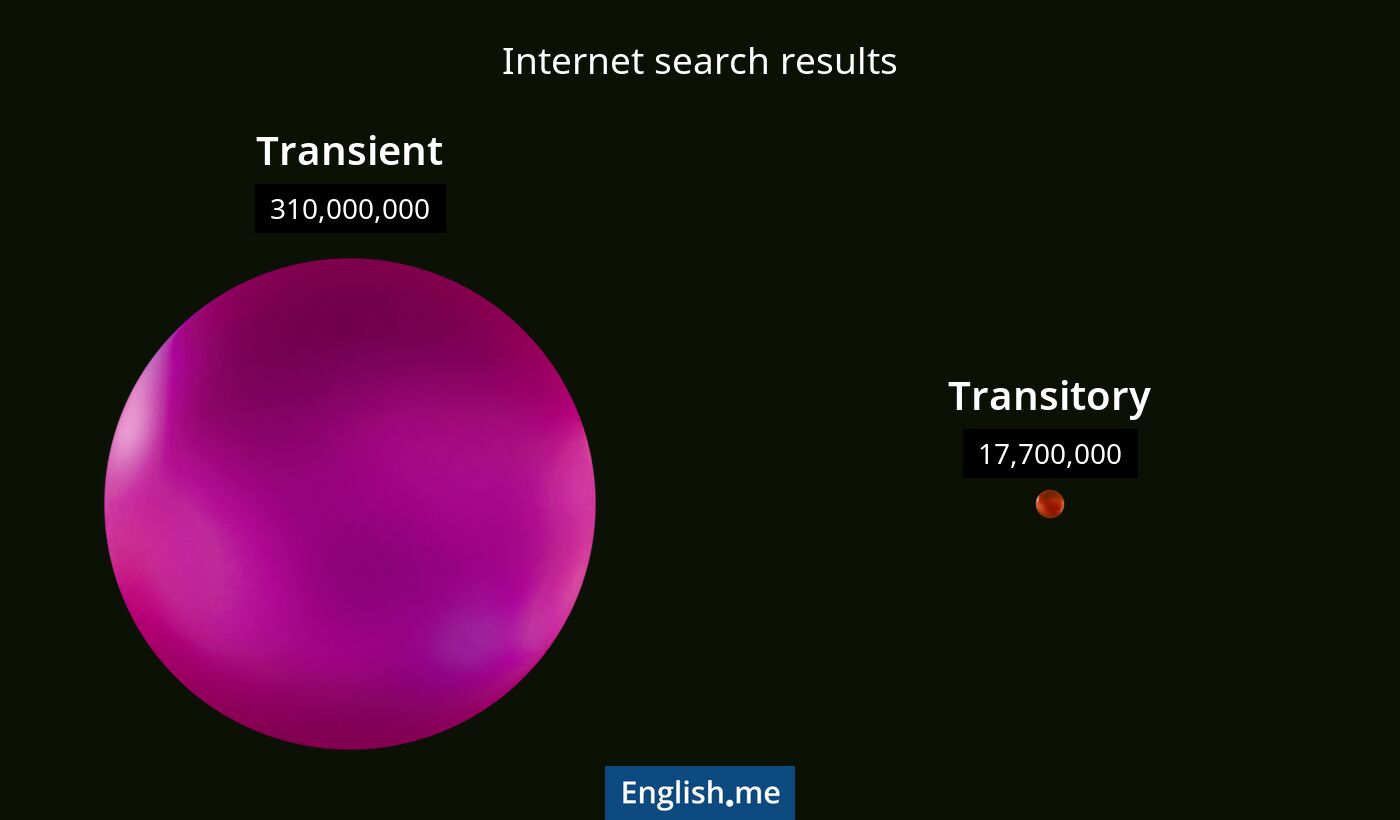"Transient" and "transitory": words of fleeting nature
Reviewed and edited by  Lloyd Cooper 26/12/2024, 15:14
Lloyd Cooper 26/12/2024, 15:14
English.me team member

 What is similar?
What is similar?
Both "transient" and "transitory" describe something that is temporary or short-lived.
 What is different?
What is different?
While both words convey temporariness, "transient" can function as both an adjective and a noun, often referring to something that passes quickly or a person staying briefly. "Transitory" is solely an adjective and emphasizes the brief duration of something, highlighting its tendency to change or pass away.
 Which one is more common?
Which one is more common?

 Examples of usage
Examples of usage
Transient- The transient rain shower left the streets glistening.
- She stayed at the hotel as a transient guest.
- The city's transient population makes long-term planning challenging.
- Youth is a transitory stage of life.
- They experienced a transitory period of prosperity.
- The excitement was transitory, soon replaced by routine.

 English
English español
español française
française italiano
italiano deutsche
deutsche 日本語
日本語 polski
polski česky
česky svenska
svenska Türkçe
Türkçe Nederlands
Nederlands